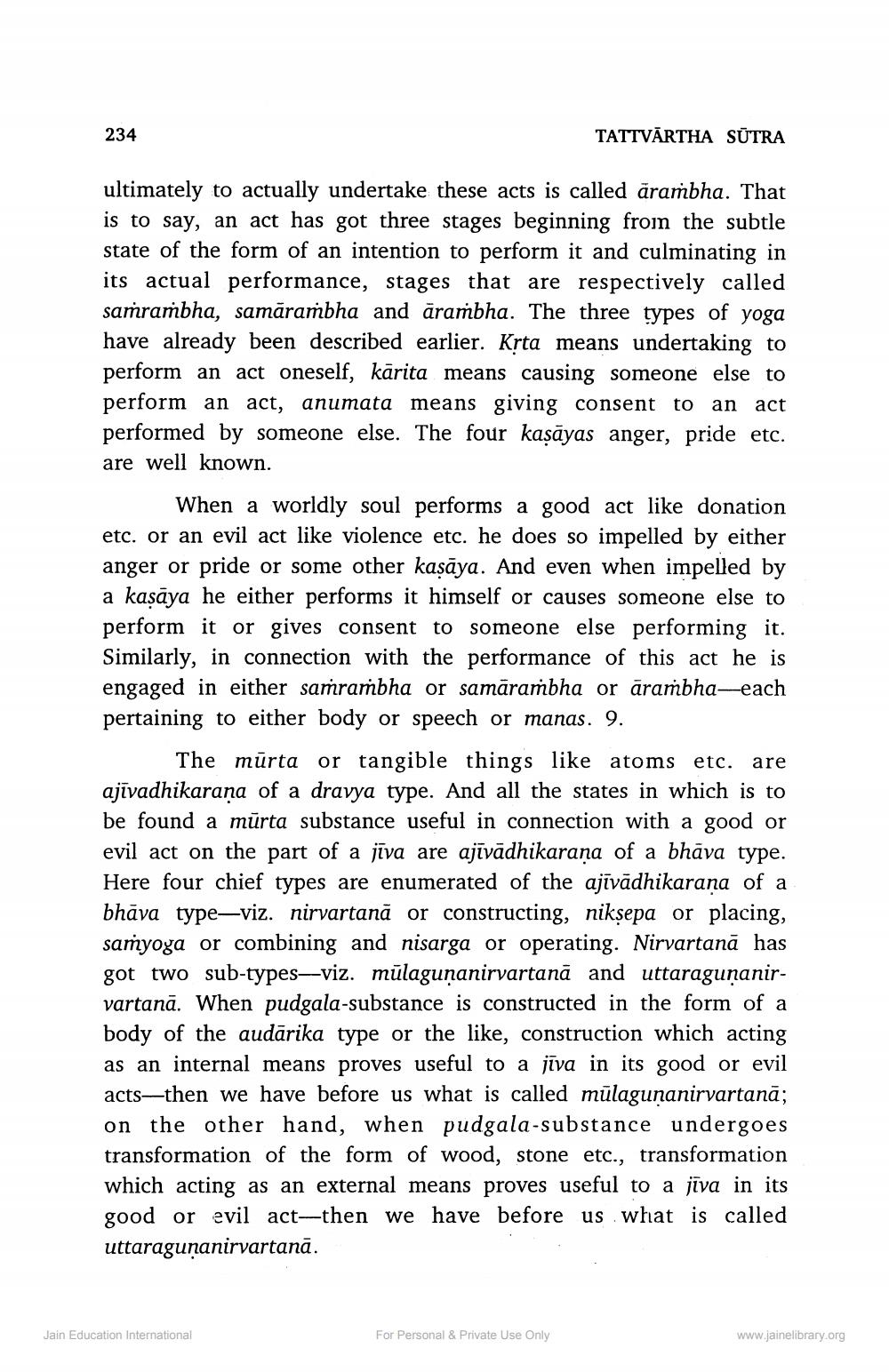________________
234
TATTVĀRTHA SŪTRA
ultimately to actually undertake these acts is called ārambha. That is to say, an act has got three stages beginning from the subtle state of the form of an intention to perform it and culminating in its actual performance, stages that are respectively called saṁrambha, samārambha and āraṁbha. The three types of yoga have already been described earlier. Krta means undertaking to perform an act oneself, kārita means causing someone else to perform an act, anumata means giving consent to an act performed by someone else. The four kasāyas anger, pride etc. are well known.
When a worldly soul performs a good act like donation etc. or an evil act like violence etc. he does so impelled by either anger or pride or some other kasāya. And even when impelled by a kasāya he either performs it himself or causes someone else to perform it or gives consent to someone else performing it. Similarly, in connection with the performance of this act he is engaged in either saṁrambha or samārambha or ārambha—each pertaining to either body or speech or manas. 9.
The mūrta or tangible things like atoms etc. are ajīvadhikarana of a dravya type. And all the states in which is to be found a mūrta substance useful in connection with a good or evil act on the part of a jīva are ajīvādhikarana of a bhāva type. Here four chief types are enumerated of the ajīvādhikarana of a bhāva type—viz. nirvartanā or constructing, niksepa or placing, samyoga or combining and nisarga or operating. Nirvartanā has got two sub-types—viz. mūlagunanirvartanā and uttaragușanirvartanā. When pudgala-substance is constructed in the form of a body of the audārika type or the like, construction which acting as an internal means proves useful to a jīva in its good or evil acts—then we have before us what is called mūlagunanirvartanā; on the other hand, when pudgala-substance undergoes transformation of the form of wood, stone etc., transformation
ich acting as an external means proves useful to a jīva in its good or evil act-then we have before us what is called uttaragunanirvartanā.
Jain Education International
For Personal & Private Use Only
www.jainelibrary.org




